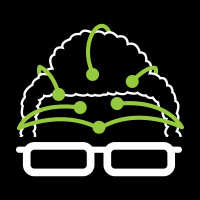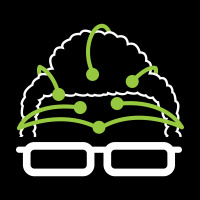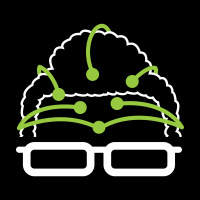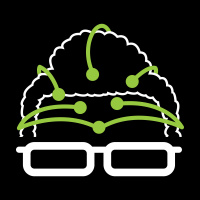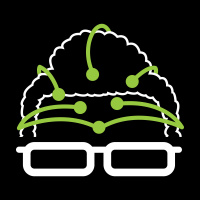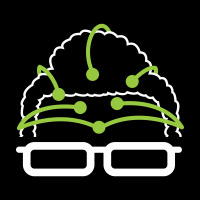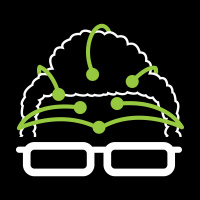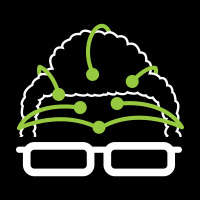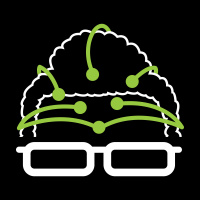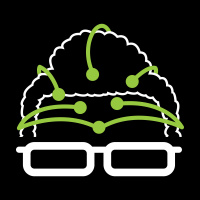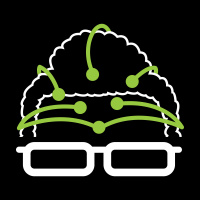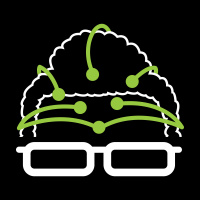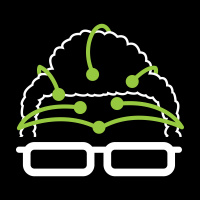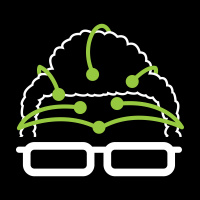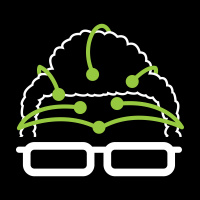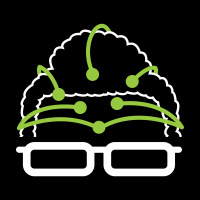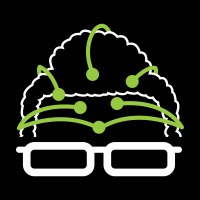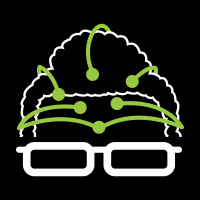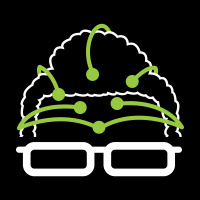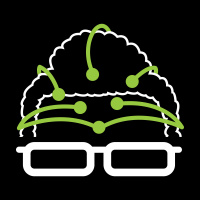Synopsis
The Buddhist Geeks Video podcast includes original recordings from the annual Buddhist Geeks Conference, and other video interviews and discussions from other Buddhist Geeks events.
Episodes
-
To Know One Religion is to Know None
25/07/2015 Duration: 30minWe’re joined this week by Comparative Religion scholar and Buddhist teacher Rita Gross. Rita shares how she got into Buddhist practice, first studying deeply in the Shambhala tradition and then in the last several years with the Tibetan Nun Jetün Khandro Rinpoche.Rita goes on to speak extensively on the value of studying religion, both as a comparative endeavor and also from the perspective of history. She speaks about the vital insights of the Western European Enlightenment and how the values of rationality and tolerance can imbue our study of Buddhism. She speaks about the types of confusion, sectarianism, and fundamentalism which can reign supreme without this comparative mirror, and urges Buddhist practitioners to learn the clear difference between traditional narratives–the story that tradition tells us–and historical narratives–what a camcorder would record if it were sent back in time. She wraps up our conversation by pointing out that the study of Buddhist history also reveals an incredibly continuity
-
The Buddhist Teachers Council
25/07/2015 Duration: 37minWe’re joined this week by vipassana teacher Martin Alyward to hear his perspective on the Buddhist Teachers Council, a recent gathering of Western teachers that was held at the Garrison Institute. Martin was part of the group of next generation teachers who met with pioneering teachers to explore how they might better support one another. In addition to exploring some of what happened at the teachers council we speak about some of the intense reactions, particularly in the blogosphere, that this gathering incited.Episode Links:2011 Buddhist Teachers Council ( http://bit.ly/1S13OOS )Le Moulin Meditation Centre ( http://www.dharmanetwork.org )See Privacy Policy at https://art19.com/privacy and California Privacy Notice at https://art19.com/privacy#do-not-sell-my-info. Get full access to Buddhist Geeks at buddhistgeeks.substack.com/subscribe
-
The End of Self-Referencing
25/07/2015 Duration: 27minWe’re joined again by Harvard trained social scientist Dr. Jeffery Martin. As a conclusion to our discussion on the initial findings on his research into “non-symbolic consciousness” Jeffery goes into the further reaches of his research participants. He speaks about the tendency for people on the higher range of his model to have a diminished sense of self-referential thoughts, emotions, and will, even to the point of being completely gone. Jeffery also covers some of the biases in his research pool, as well as the way that traditions might serve to both support and then also hinder people’s movement into non-symbolic consciousness.This is part 2 of a two-part series. Listen to part 1, The Study of Non-Symbolic Consciousness.Episode Links:The Fourth Awakening ( http://www.fourthawakening.com )Center for the Study of Non-Symbolic Consciousness ( http://www.nonsymbolic.org )See Privacy Policy at https://art19.com/privacy and California Privacy Notice at https://art19.com/privacy#do-not-sell-my-info. Get full ac
-
The Study of Non-Symbolic Consciousness
25/07/2015 Duration: 25minWe’re joined by Harvard trained social scientist Dr. Jeffery Martin to discuss some of the incredible research that he’s doing into the further reaches of human potential. He speaks about his initial research, done during his first PhD program, wherein he extensively studied the self-help and positive psychology literature. He explains how this research led him to see that where the further reaches of that literature–and the practices therein–left off was where non-symbolic consciousness begins. Jeffery then goes on to describe the extensive research that he’s done, while completing his PhD at Harvard, on the nature of awakened, or non-dual consciousness.This is part 1 of a two-part series. Listen to part 2, The End of Self-Referencing.Episode Links:The Fourth Awakening ( http://www.fourthawakening.com )Center for the Study of Non-Symbolic Consciousness ( http://www.nonsymbolic.org )The God Formula ( http://amzn.to/ovnEwe )The Intention Experiment ( http://amzn.to/nraxW0 )See Privacy Policy at https://art19.c
-
Tuning In to the Truth of the Moment
25/07/2015 Duration: 22minWe’re joined again by meditation teacher and actress Stephanie Nash, this time to explore some of the striking parallels between the disciplines of acting and meditation. Stephanie shares how a month-long Shakespeare acting intensive was her gateway to the spiritual path and how at it’s core acting is about allow the flow of experience and emotion. She relates some of the Vajrayana practices to the techniques that actors use, and shares some of the ways that actors use the body to enter into an emotion. We conclude by discussing some of the ways that meditators might also learn from actors, especially when it comes to learning how to positively express emotions and stay embodied.This is part 2 of a two-part series. Listen to part 1, The Chief Facilitator.Episode Links:www.mindfulnessarts.orgSee Privacy Policy at https://art19.com/privacy and California Privacy Notice at https://art19.com/privacy#do-not-sell-my-info. Get full access to Buddhist Geeks at buddhistgeeks.substack.com/subscribe
-
The Chief Facilitator
25/07/2015 Duration: 20minWe’re joined this week by meditation teacher and actress Stephanie Nash, to discuss her experience of working with her Shinzen Young. Stephanie is one of Shinzen’s chief facilitators and has been working closely with him since the late 90s. She shares some of the key things she has learned in that process, including the practice of interactive meditation and radical experimentation.This is part 1 of a two-part series. Listen to part 2, (airing next week).Episode Links:Mindfulness Arts ( http://www.mindfulnessarts.org )Shinzen Young Interviews | YouTube Channel ( http://www.youtube.com/user/ShinzenInterviews )Stephanie Nash & Other Teachers | YouTube Channel ( http://www.youtube.com/stephnashmeditation0 )See Privacy Policy at https://art19.com/privacy and California Privacy Notice at https://art19.com/privacy#do-not-sell-my-info. Get full access to Buddhist Geeks at buddhistgeeks.substack.com/subscribe
-
No System Exists in a Vacuum
25/07/2015 Duration: 19minWe’re joined again by Yoga and Buddhist meditation teacher Michael Stone, this time to look at Buddhism as a system. We speak about the interrelations between spiritual systems and the sociological, ecological, and cultural systems that also make up our lives. We also explore what it means for dharma to be in concert with its environment looking at how a systems view may support our motivations to really bring inner wisdom into the outer world.This is part 2 of a two-part series. Listen to part 1, Connections Between Yoga & Buddhism.Episode Links:Centre of Gravity ( http://www.centreofgravity.org )The Ariyapariyesana Sutta ( http://www.accesstoinsight.org/tipitaka/mn/mn.026.than.html )See Privacy Policy at https://art19.com/privacy and California Privacy Notice at https://art19.com/privacy#do-not-sell-my-info. Get full access to Buddhist Geeks at buddhistgeeks.substack.com/subscribe
-
Connections Between Yoga & Buddhism
25/07/2015 Duration: 31minWe’re joined this week by Yoga and Buddhist meditation teacher Michael Stone. We begin by finding out how Michael got into spiritual practice, which happened to be at an early age through a profoundly spiritual uncle who suffered from schizophrenia. During his time in the asylum, visiting his uncle, he learned to meditate, to contemplative the words of great masters from the past, and to develop his own ideas regarding the spiritual path. This early exposure and interaction informed Michael’s future journey, when he ended up practiced deeply in both the yogic and Buddhist traditions.We finish our conversation by exploring some of the overlaps and deep connections between these wisdom schools, paying particular attention to the similarities between Patanjali’s Yoga Sutras and the early sutras of Siddhartha Buddha. We also speak about the body practices of yoga and what they may have to offer to the mind practices of Buddhism, noticing that both schools are ultimately both mind and body practices.This is part 1
-
Organizational Enlightenment
25/07/2015 Duration: 23minWe’re joined again this week by organizational expert, and founder of HolacracyOne, Brian Robertson. Brian begins by describing the pit-falls of both strict hierarchy and consensus based organizational structures, pointing out that in both cases the systems are fused with the people. He contrasts that with the Holacracy structure, which employs several methods designed such that the value of both top-down and bottom-up wisdom can be incorporated into an organization. We then discuss the challenges of implementing a system like Holacracy, including the difficult “ego shock” that it can have on people who are used to being heroic leaders. We then speak about the notion of “organizational enlightenment”, which Brian speaks of as “the organization waking up to its own purpose in the world”. This is part 2 of a two-part series. Listen to part 1, Liberating the Soul of Organization. Episode Links:
-
Liberating the Soul of Organization
25/07/2015 Duration: 33minWe’re joined this week by Brian Robertson, founder of HolacracyOne, a company whose aim is to liberate the soul of organization. We discuss with Brian the main principles and practices behind Holacracy—a system that Brian helped develop as a new operating system on which businesses can run. He distinguishes between what he calls “predict-and-control” management practices and “sense-and-respond” processes, which are much more like the dynamic steering of a bicycle. We also look at the parallels between the practice of Holacracy and the practice of meditation. Brian’s description of Holacracy as a practice which encourages people to be ruthlessly present with current tensions and to not identify with the roles that they fill are two striking examples of meditative principles applied to business. We conclude our discussion by exploring what he calls “the tyranny of consensus”, seeing that even with a group of highly conscious individuals we may not have the collective skills to really give life to the organizati
-
The Aesthetic of Meditation is Broken
25/07/2015 Duration: 27minWe’re joined again by a regular contributor of Buddhist Geeks and blogger at 21awake.com, Rohan Gunatillake. Rohan joins us to explore three areas in which the aesthetic of meditation could be improved. Specifcally these areas are: 1) language, 2) look & feel, & 3) delivery models. We then explore various ideas on how to meet these design challenges with design-specific solutions. Rohan suggests that taking a co-design approach to these challenges, including the users more fully into the design process, is a great first step. In addition he shares details on a project that he’s currently working on, a mobile application called Buddhify, which is a specific example of improving the aesthetic of meditation through technological and design innovations.Episode Links:www.21awake.comEdinburgh Festivals Innovation Lab ( http://festivalslab.com )Buddhify ( http://buddhify.com )See Privacy Policy at https://art19.com/privacy and California Privacy Notice at https://art19.com/privacy#do-not-sell-my-info. Get fu
-
Teaching Mindful Awareness to Children
25/07/2015 Duration: 19minThis week we’re joined by Susan Kaiser Greenland a leader in bringing mindful awareness to children and teens. We explore the differences between mindful based approaches and Buddhist approaches, seeing in what ways they are mutually supportive and in what ways tensions exist between them. Susan then shares some of the methods she uses for introducing mindfulness to children in a natural way, while highlighting the importance of that teaching being truly embodied.Episode Links:www.susankaisergreenland.comwww.MindfulnessTogether.netSee Privacy Policy at https://art19.com/privacy and California Privacy Notice at https://art19.com/privacy#do-not-sell-my-info. Get full access to Buddhist Geeks at buddhistgeeks.substack.com/subscribe
-
Emergent Buddhism
25/07/2015 Duration: 22minWe’re joined this week by Buddhist teacher and scholar Hokai Sobol to explore the broad, but crucial topic of Emergent Buddhism. As a preface to the panel that Hokai will be leading at the upcoming Buddhist Geeks Conference on “The Emerging Face of Buddhism,” he explores the nature of emergence in the history of Buddhism, pointing out that “everything that we call traditional now was at one point emergent.”Hokai also explores some of the his deepest questions regarding “Emergent Buddhism,” namely 1) What has emerged thus far, that has worked?, 2) What is emerging right now?, and 3) What do the coming decades hold? He explores the importance of each of these questions, while at the same time tackling some complex issues regarding the massive cross-pollination and convergence of multiple religious and secular traditions with Buddhism.Episode Links:www.hokai.infoSee Privacy Policy at https://art19.com/privacy and California Privacy Notice at https://art19.com/privacy#do-not-sell-my-info. Get full access to Buddh
-
The Practice of Contemplative Photography
25/07/2015 Duration: 31min“Photography and Buddhism share essential interests: both are concerned with clear seeing.” – Andy Karr & Michael WoodWe’re joined this week by Buddhist teacher and photography Andy Karr. We explore some of the principles and practices behind the practice of contemplative photography, a unique method developed by Michael Wood. We also look into the overlaps between Buddhism and photography, with a special emphasis on the distinction of perception vs. conception.Finally we discuss the broader topic of art and creativity, exploring some of the ways that Chogyam Trunpa taught on this subject, the differences between Western and Eastern art, and the way that “basic nature” serves as the very source of creativity.Episode Links:The Practice of Contemplative Photography: Seeing the World with Fresh Eyes ( http://amzn.to/fPJWQc )Contemplating Reality for the 21st Century ( http://contemplatingreality.blogspot.com )The Miksang Institute for Contemplative Photography ( http://www.miksang.com )See Privacy Policy at
-
Resolving the Questions that Drive Us
24/07/2015 Duration: 28minWe finish up our discussion with meditation teacher Ken McLeod, touching on a number of fascinating and challenging topics. Ken speaks about the distinction between answering the questions that drive us, as opposed to simply understanding “what the Buddha taught.” He gets into where he thinks these questions originate from, and also what meaning evolution might have on our personal stories.Ken also explores the dichotomy of lay vs. monastic practice, and uses several analogies to illustrate the differences, including from both music and sports. Vincent and Ken get into a spirited and philosophical discussion as to how far one can take these analogies and how accurate they might be when applied to Buddhist theory and practice.This is part 2 of a two-part series. Listen to part 1, Pragmatic Buddhism.Episode Links:Unfettered Mind ( http://www.unfetteredmind.org )Buddhism Without Beliefs ( http://amzn.to/ednqVh )Malcolm Gladwell ( http://en.wikipedia.org/wiki/Malcolm_Gladwell )Khyungpo Naljor ( http://www.tibetan
-
Pragmatic Buddhism
24/07/2015 Duration: 18minWe’re joined this week by Buddhist teacher, Ken McLeod, to explore an approach he has coined “Pragmatic Buddhism.” We explore his early Buddhist training, which included 2 back-to-back 3-year retreats, completed under the guidance of Ven. Kalu Rinpoche. He describes this period as part boarding school, prison, and seminary. He shares why it was such a huge culture shock coming out of that traditional training, and ties that in with the way Buddhism has evolved in various cultures up to this point. Ken goes on to share 4 ways that he has adapted his own teaching style to reflect our culture, touching on issues of translation, power, questioning, and the meaning of practice itself.This is part 1 of a two-part series. Listen to part 2, Resolving the Questions that Drive Us.Episode Links:Unfettered Mind ( http://www.unfetteredmind.org )Dr. James Carse ( http://www.jamescarse.com )Kumbh Mela ( http://en.wikipedia.org/wiki/Kumbh_Mela )See Privacy Policy at https://art19.com/privacy and California Privacy Notice at
-
Emerging Trends in Western Buddhist Communities
22/07/2015 Duration: 22minWe’re joined this week by Ph.D Candidate and Buddhist blogger Brooke Schedneck, to explore her research into several emerging patterns in Western Buddhist communities. We begin with how, as a training academic, she got into Buddhism and how she ended up combining both 1st and 3rd person observation into her research. We also explore her current research at International meditation centers in Thailand, and how this research highlights larger trends in how Buddhism is interacting with modernity.She goes into several broad trends that she is tracking including 1) The ongoing relationship between lay and monastic forms 2) the pragmatic dharma movement 3) practitioners having a strong interest in the future of Western Buddhism & 4) an overall sense of a movement toward greater balance in Buddhist communities.Episode Links:Wandering Dhamma ( http://wanderingdhamma.wordpress.com/ )Cambridge Insight Meditation Center ( http://www.cimc.info/ )The Hardcore Dharma Movement ( http://wanderingdhamma.wordpress.com/2010
-
The Timeless Tradition of Spiritual Apprenticeship
22/07/2015 Duration: 30minIn the last part of our discussion with Buddhist teacher and scholar Hokai Sobol, we wrap up our exploration on some of the important influences and forces that shape Western Buddhism. As part of that we discuss the fluid nature of his consumer-client-colleague model. We also talk about the deep problems that have arisen from adopting traditional models, instead of current ones, and how this has generated a multitude of scandals—including scandals of power, sex, and also of the generational problem of their being so few young practitioners today. Finally, we talk about how to reinvigorate “the timeless tradition of spiritual apprenticeship.” Hokai speaks about what he calls “essential apprenticeship,” and also brings up a couple of questions related to the way that spiritual apprenticeship relates to current cultural forms. This is part 4 of a multi-part series. Episode Links: Hokai Sobol ( www.hokai.info )See Privacy Policy at https://art19.com/privacy and California Privacy Notice at https://art19.com/priva
-
Exchanging Dharma: Client and Colleague Mindsets
22/07/2015 Duration: 20minWe’re joined by Buddhist teacher and scholar Hokai Sobol, as we continue exploring the different mindsets that we often take, while exchanging Dharma here in the West. In the last episode he described the Consumer mindset, and in this one goes on to speak about the Client and Colleague mindsets. He explores the healthy and unhealthy versions of each, as well as how each of the three mindsets differ from one another.This is part 3 of a multi-part series. Listen to part 1, The Invisible Forces that Shape Western Buddhism and part 2, Exchanging Dharma:The Consumer Mindset.Episode Links:Hokai Sobol ( www.hokai.info )Herbert V. Günther ( http://bit.ly/1CQHrVP )See Privacy Policy at https://art19.com/privacy and California Privacy Notice at https://art19.com/privacy#do-not-sell-my-info. Get full access to Buddhist Geeks at buddhistgeeks.substack.com/subscribe
-
Exchanging Dharma: The Consumer Mindset
22/07/2015 Duration: 20minWe’re joined again this week by Buddhist teacher and scholar Hokai Sobol, to continue our exploration of the hidden mindsets and cultural forces that shape Western Buddhism. In this episode Hokai explores a tradition of exchanging knowledge, which is at least 1,000 years old in Europe, that of the “master & apprentice.” Hokai describes the process by which Europeans used to, and in some cases still do, learn a particular trade, by first becoming a novice apprentice, eventually striking out on one’s own as a journeyman, and then finally coming back to become part of the local guild, as a full master of one’s craft. This model, he explains, has striking similarities to the traditional model found in the Asian countries where Buddhism thrived.He then presents a new model for how we might look at exchanging Dharma. This model includes three mindsets, or roles that we take on as Dharma practitioners and teachers, with the first one being the “consumer mindset.” We look at both the immature and mature versions

